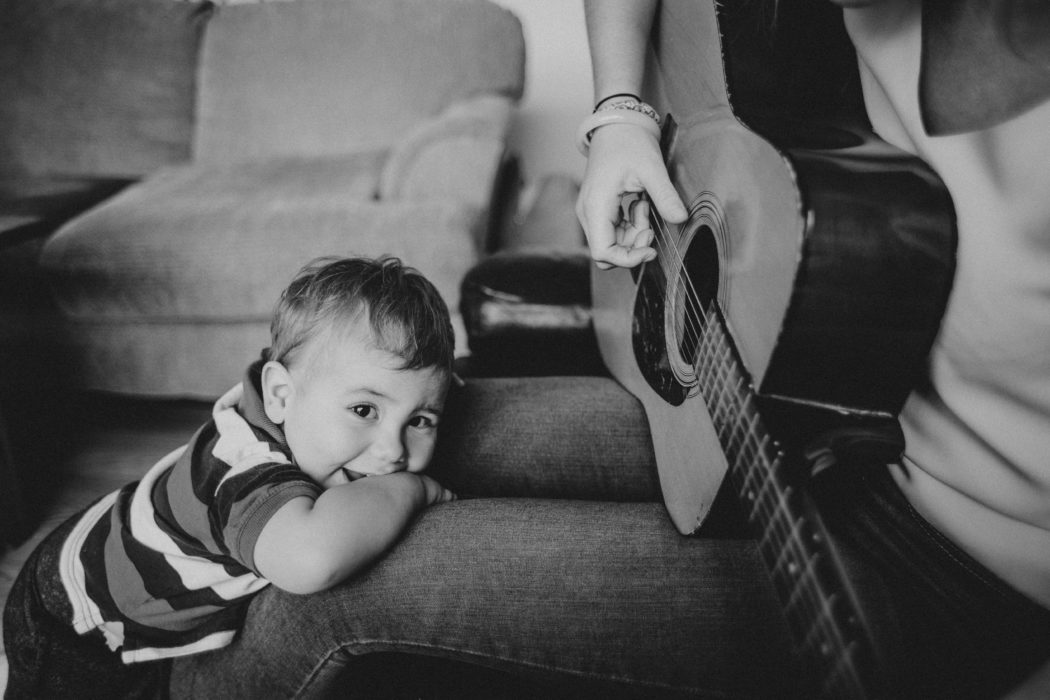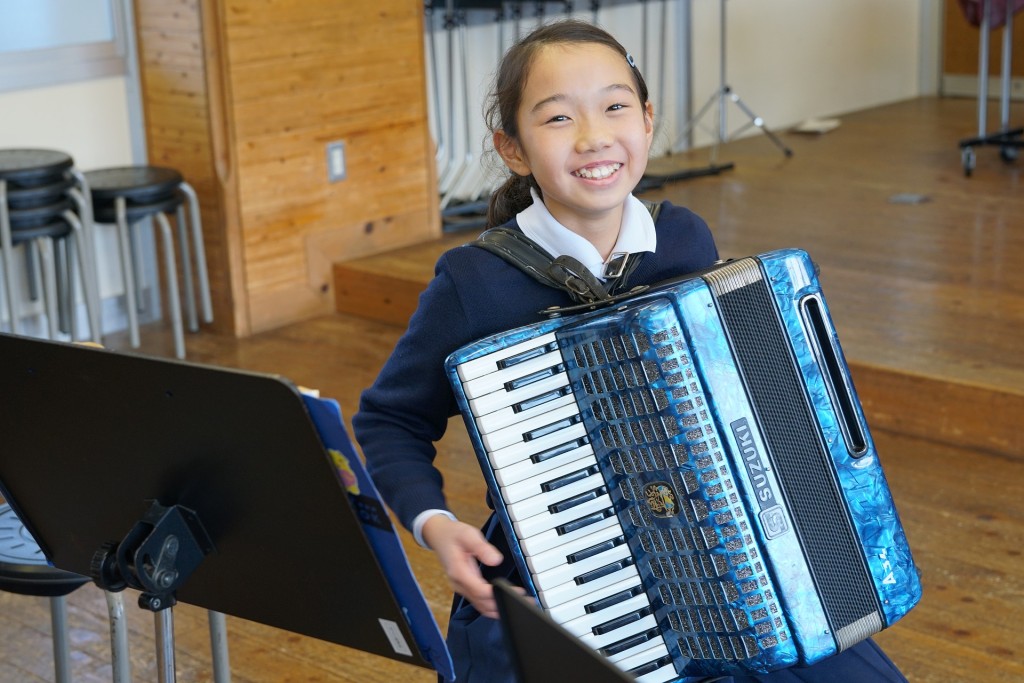The importance of music in children’s lives begins well before they start playing with the xylophones at kinder. Music has an impact on a baby’s development before they are even born, and can impact their development in the first years of their lives.
Impact on the brain
In a series of musical play sessions undertaken by a Washington Education study, a group of nine-month-old babies recorded having improved brain processing of both music and new speech sounds in the weeks after the experiment. This and other studies have found that there is a strong link in the human brain between rhythmic patterns that we hear in music and the rhythmic patterns in speech – regardless of the language being spoken.
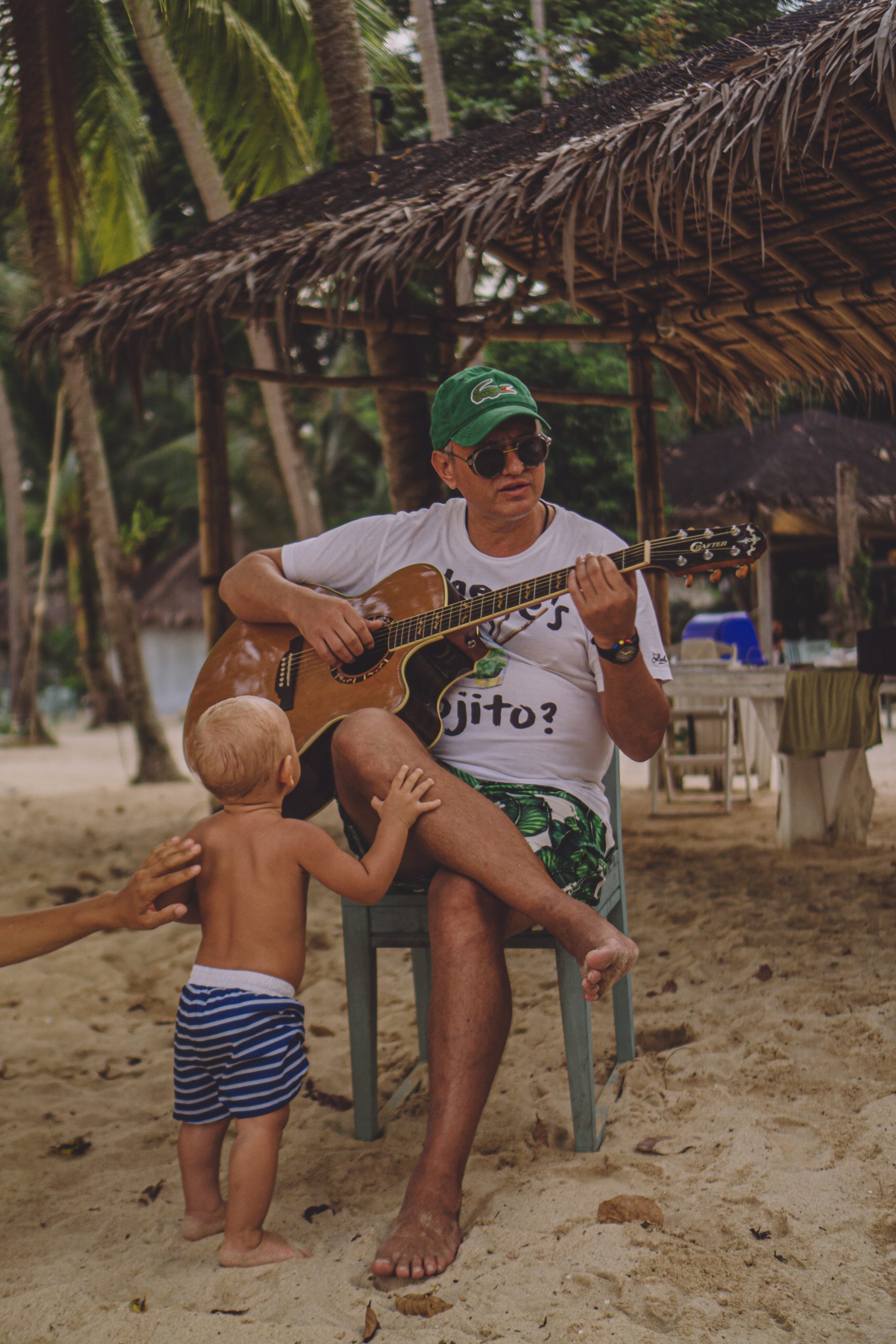
Listening to music primes the cognitive processes in the brain to listen carefully and imitate parents’ speech, copying rhythmic patterns as well as sounds even before the linguistic meaning of individual words is learnt.
Postdoctoral researcher and lead author, Christina Zhao, states that interaction with music and musical experiences from an early age has a greater overall impact on the cognitive skills of babies. Within one week, babies who listen to music from an early age can sense disruptions in musical patterns. Studies where babies’ brains have been monitored while music is being played have shown that when a song or a line of speech is disrupted either in rhythm or flow, babies who have listened to music from birth can detect this disruption.
Studies from the Institute of Learning and Brain Sciences have revealed that the auditory and prefrontal cortexes of the brains of babies who have listened to music look physically different and are more developed than those of other children of the same age. These two regions of the brain are responsible for processing music as well as speech.
Playing versus listening
While listening is one major aspect of the overall impact of music, playing music takes everything one step further. Playing musical instruments, even if it is simply your infant making noise on a toy drum, has a profound effect on the brain regardless of age. For babies, playing with a musical instrument requires them to use and further develop their fine motor skills, encourages linguistic and mathematical precision when it comes to rhythms on the instrument, and most importantly encourages creativity through experimenting with sounds.
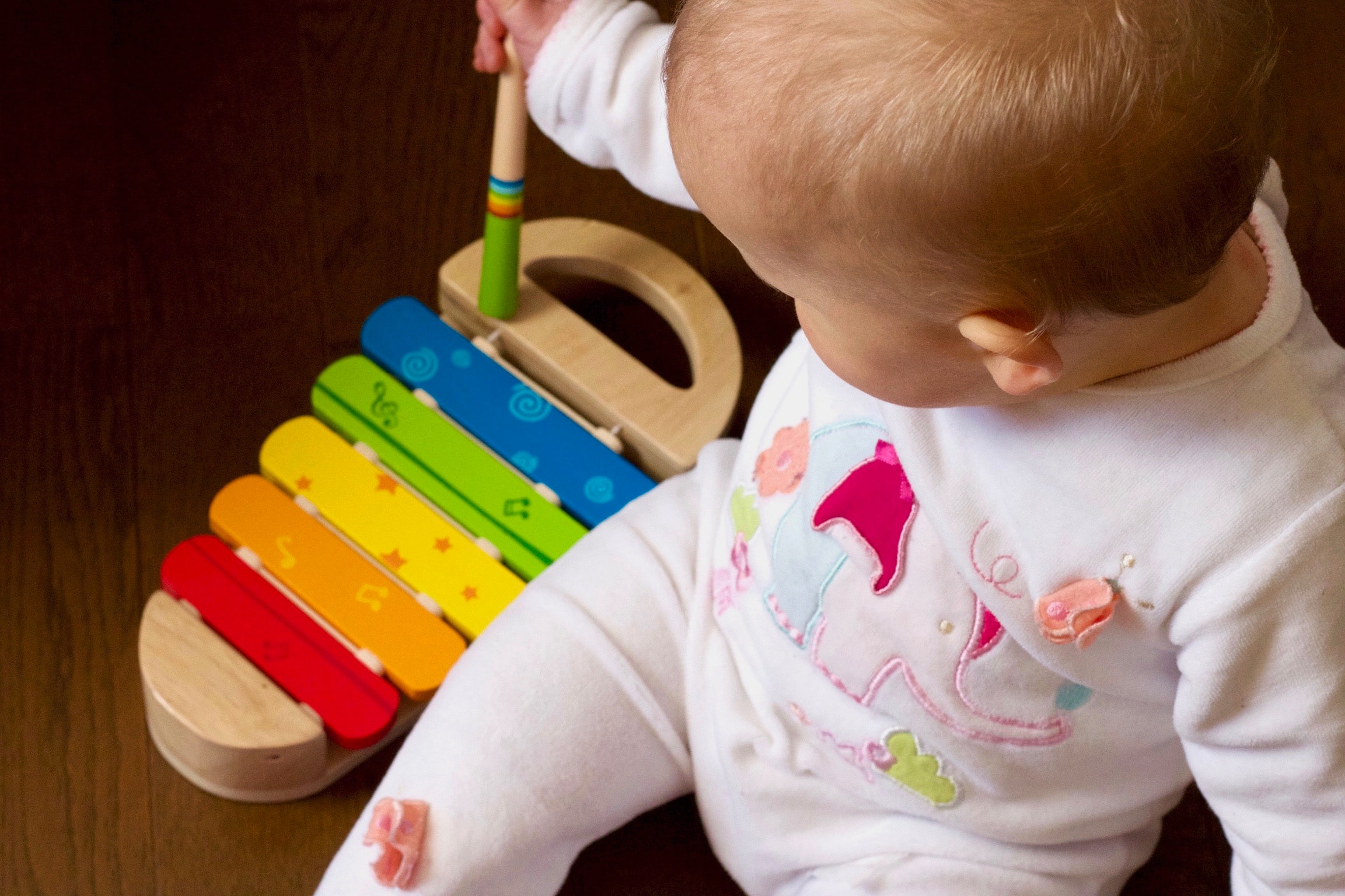
Playing music is a unique activity for children, teenagers and adults alike as it uses multiple areas of the brain all at once. It is one of the only activities that stimulates a multitude of areas in the brain simultaneously. In babies, music stimulates the formation of brain chemicals that we receive when we listen to music – dopamine and oxytocin. Both of these chemicals are the foundations for encouraging sharing, trust and empathy.
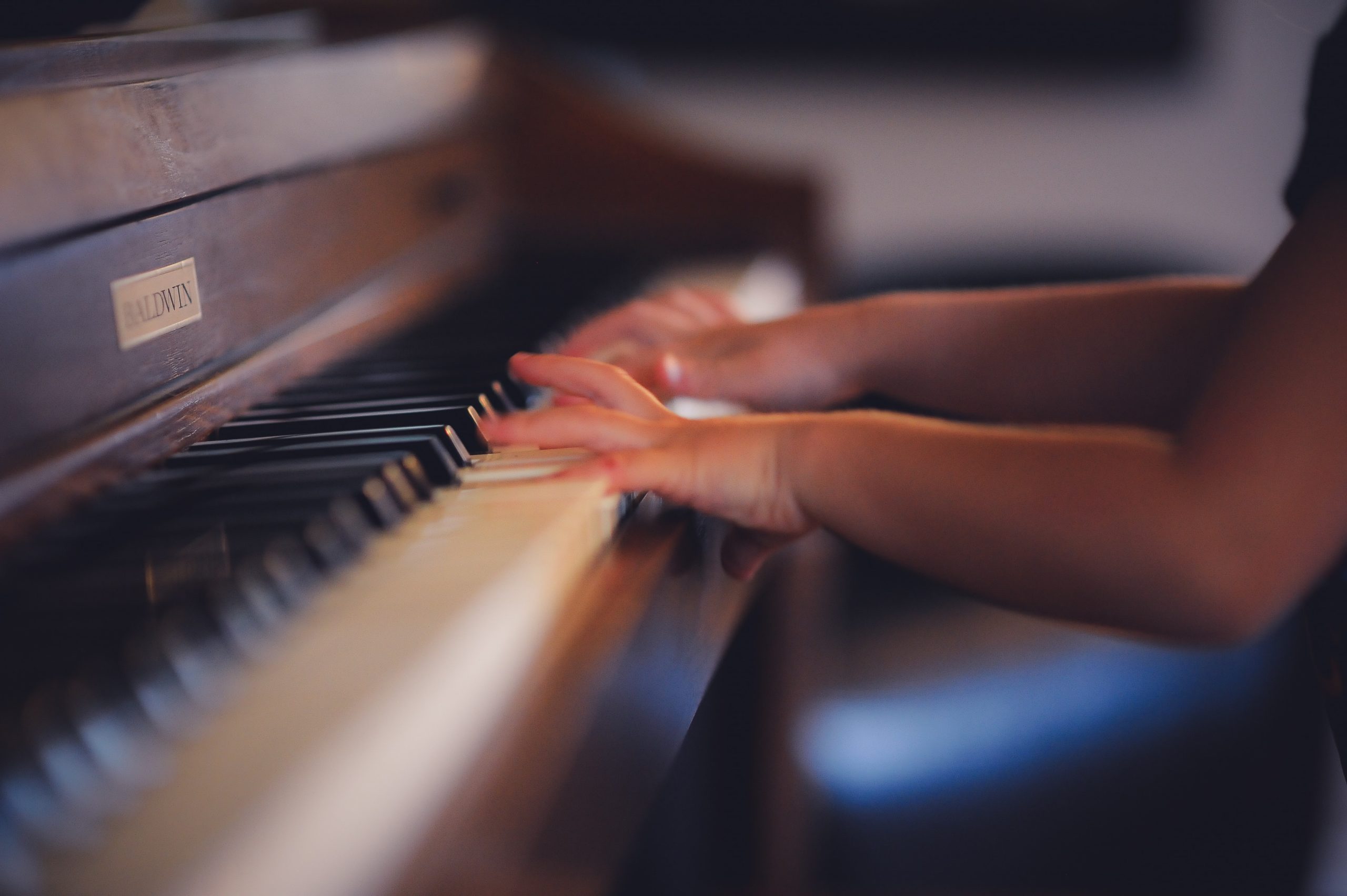
Social and emotional development in babies is also increased through music listening and playing, with reduction in stress levels, improvement in moods, and mood management through listening to sad and happy songs.
What kind of music?
All music helps to stimulate the faculties, but classical music has a particularly strong effect on infants and unborn babies. Referred to as “The Mozart Effect”, playing classical music by Mozart while babies are in the womb has shown to have lasting effects on them after they are born.
Classical music is itself more musically complicated than most standard radio pop or country songs. It therefore takes a lot more brain activity in both infants and adults (but particularly infants) to process the complexity of what they are hearing when they listen to classical music. Introducing your children to playlists of soft Mozart or classical music (link to playlists on Spotify? Or a recommendation that I write out? Barbie Nutcracker, Swan Lake, etc. examples?) is a good way to start the listening process even while they are in the womb. After they are born, soft classical music has been shown to improve sleep quality by relaxing babies, as well as the added benefits to cognitive function and speech acquisition.
A recent experiment where foetuses were played 70 hours of music in the last week of pregnancy showed that these children had better motor and linguistic development by six months old than children who had had no musical stimulus.
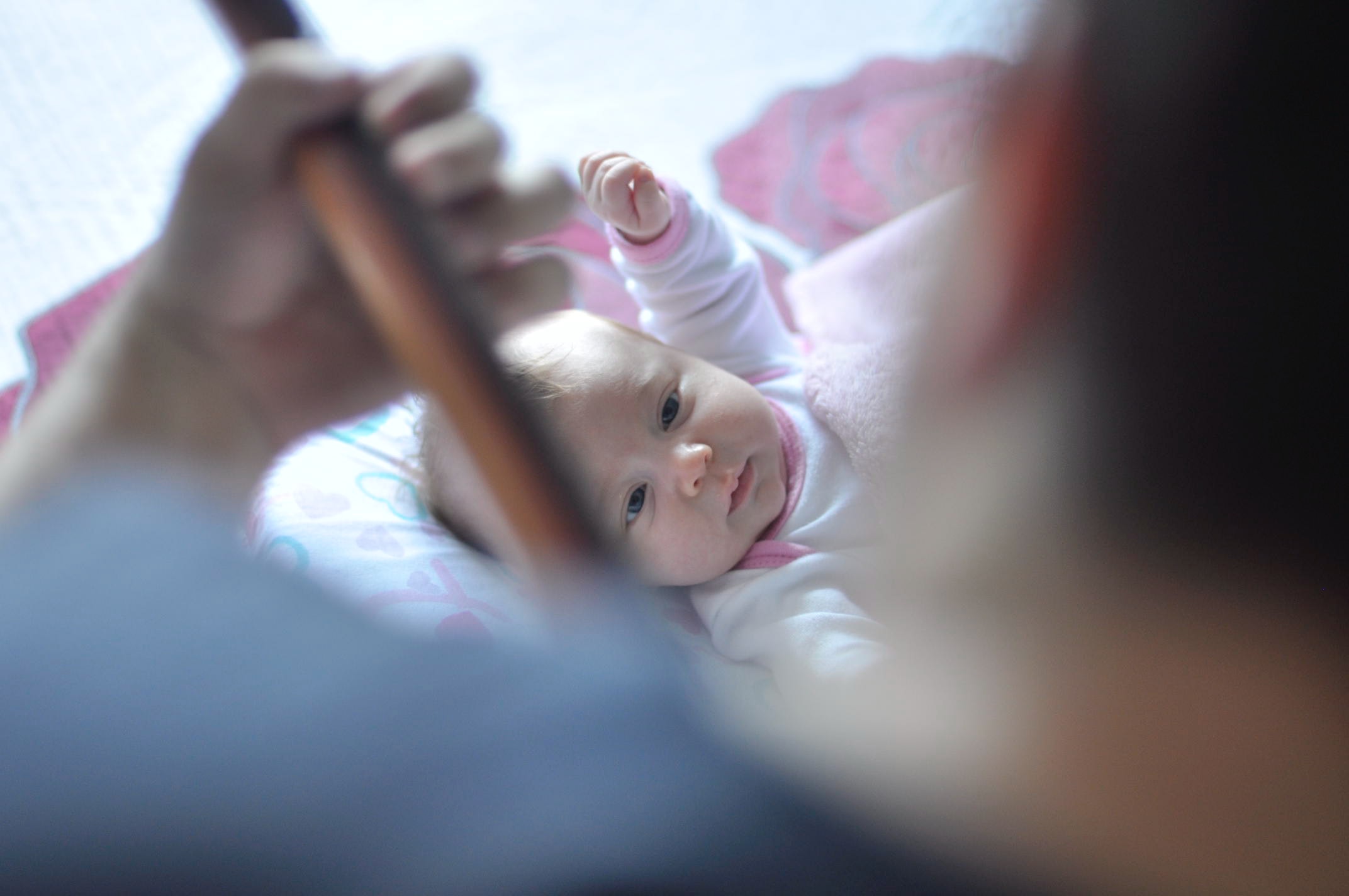
Introducing your baby to music is an experience that has long lasting effects on your child’s development as they grow older. It’s an easy way to assist them in brain development, and one that you can participate in too as a parent by joining in on the listening, singing, dancing, and playing with musical instruments together.




